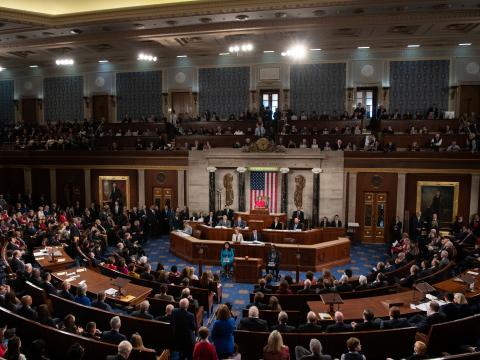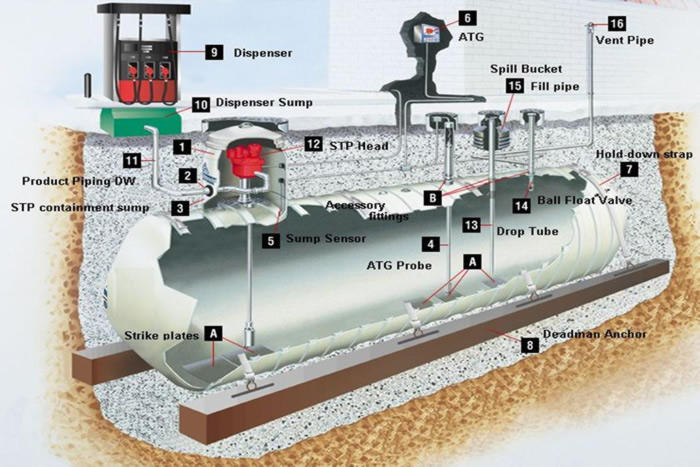
Source: U.S. House of Representatives.
All five Contra Costa Congressmen vote in favor; DeSaulnier praises passage calling it historic investment in American families; likely to be changed in the Senate, where support of all 50 Democrats is needed; CBO says it will increase deficit by almost $800 billion over next five years
By Allen Payton
The U.S. House of Representatives passed President Biden’s $2.2 trillion Build Back Better Act, H.R. 5376, also known as the budget reconciliation package, on Friday, on a mainly partisan vote of 220-213 with all Republican members and only one Democrat voting no. It now moves on to the Senate.
According to Roll Call, “Two key holdouts —West Virginia’s Joe Manchin III and Arizona’s Kyrsten Sinema — have yet to offer a public endorsement of the package. Senate Majority Leader Charles E. Schumer, (D-N.Y.), set a Christmas deadline for final passage.”
The 2,702-page bill passed following a record-breaking, 8 1/2-hour filibuster speech by Minority Leader Kevin McCarthy, (R-Bakersfield). He said, “it’s the most irresponsible spending bill in the history of America.”
According to the Summary of Cost Estimate by the Congressional Budget Office the legislation will increase the deficit by almost $800 billion through Fiscal Year 2026. However, “The CBO estimates that enacting this legislation would result in a net increase in the deficit totaling $367 billion over the 2022-2031 period, not counting any additional revenue that may be generated by additional funding for tax enforcement.”
However, according to the Committee for a Responsible Federal Budget, the legislation could result in a net deficit increase of $2.2 to $2.7 trillion if temporary provisions are made permanent without offsets.
DeSaulnier’s Statement on Passage
On Friday, Congressman Mark DeSaulnier (D, CA-11), who represents portions of Antioch, issued the following statement upon passage of the Build Back Better Act (H.R. 5376), which passed the U.S. House of Representatives by a vote of 220-to-213.
“Today’s passage of the Build Back Better Act is a victory for families across the country and in Contra Costa. Through its historic investments in early, primary, and secondary education and childcare, we are finally ensuring that all children have the opportunity to thrive both in and out of the classroom, no matter where they live or how much their parents earn. From free preschool for three- and four-year-olds to lowering the cost of high-quality childcare, this bill would give over 90% of parents with young children the opportunity to reenter the workforce knowing their children are safe, cared for, and learning.
By finally calling on the wealthiest Americans and big corporations to pay their fair share, every provision in this bill is paid for and we are making a statement that our children are our priority. I urge the Senate to pass the Build Back Better Act without delay to deliver this much needed relief to families as quickly as possible. American families are counting on it.”
In addition, Build Back Better would:
- Provide monthly payments of $300 per child under 6 and $250 per child ages 6 to 17 for more than 35 million families under the Child Tax Credit;
- Devote the necessary resources to combat the climate crisis through expanded tax credits for clean energy and programs to drive down pollution;
- Lower the cost of prescription drugs and expanding Medicare, Medicaid, and the Affordable Care Act;
- Bring down costs of long-term care and supporting care workers;
- Expand opportunities for workforce development programs; and
- Create affordable housing.
Unpopular Provisions in Bill
According to polling, only 39% of battleground voters support “Build Back Better” while 46% oppose it.
Some of the most unpopular items in the bill include:
- A natural gas tax that will increase home heating costs, electricity rates, and raise gas prices.
- An eighty-thousand-dollar tax break to wealthy homeowners in New York, New Jersey, and California.
- A $3,600 a year child tax credit to illegal immigrants for every child they bring into America or give birth to after arriving.
- 87,000 new IRS agents to increase audits of taxpayers that will look through the bank accounts of every American earning or spending more than $600 per year to make sure they are paying enough taxes, disproportionally affecting small business owners.
What’s In the Bill
According to the National Review, the legislation includes:
$555 billion in subsidies to move America from one source of energy to another, including up to $12,500 per new electric car purchase;
$220 billion for clean energy & climate resilience;
$190 billion to establish or expand clean energy & electric tax credits;
$60 billion to establish or expand clean fuel & vehicle tax credits;
$75 billion to establish or expand other climate-related tax benefits; and
$10 billion to enact infrastructure & related tax breaks;
$400 billion for universal pre-school and day care, including $18 billion in the first three years to create universal pre-kindergarten. Then, the program would be funded by a mixture of federal and state funds;
$300 billion for restoration of the state and local tax (SALT) deduction eliminated in the Tax Cuts and Jobs Act of 2017. According to CNBC the bill, “raises the cap on the state and local tax deduction from $10,000 to $80,00 in 2021, which will benefit the richest households in the country, according to the Tax Foundation.”
$200 billion to extend and expand both the Child Tax Credit and the Earned Income Tax Credit, for four weeks of paid parental, sick or caregiving leave;
$90 billion for what the White House describes as “Equity and Other Investments”;
$38 billion in new energy taxes;
$9 billion to higher-learning institutions for “qualified environmental justice programs”;
$7 billion for service groups for projects related to “climate resilience and mitigation”;
$3.5 billion for ports to purchase “zero-emission” equipment;
$3 billion to fund pandemic preparedness;
$3 billion for better records and hospitals for veterans;
$3 billion in “climate justice block grants” that go into projects in disadvantaged communities. The criterion for grants is based on the race of the projects’ sponsors;
$450 million for nontraditional climate apprenticeship programs;
$350 million to “rebuild” the National Labor Relations Board and $321 million to “rebuild” the Equal Employment Opportunity Commission;
$275 million to upgrade the health-care system in Hawaii which also gets $5 million to save endangered plants;
$200 million to preserve Native American languages;
$150–$250 million (estimated) as tax credits to “local” news organizations, excluding government entities, except NPR and PBS. Note: “Local” is broadly defined, and appears to include almost all news organizations, including the New York Times and Washington Post. The bill also contains a rich new deduction for trial lawyers;
$124 million to combat substance abuse;
$85 million for studying the risks of climate change for “pregnant, lactating or post-partum individuals”;
$50 million to train and certify more doulas; and
$5 million to save desert fish.
According to CNBC, “To pay for the bill, House Dems are proposing increasing some taxes on businesses and the wealthiest Americans. It includes a 5% surtax on adjusted gross income (AGI) over $10 million for individuals and an additional 3% on AGI over $25 million.”
See more details on the Committee for a Responsible Federal Budget website.
















 Amtrak San Joaquins is expecting to see a significant increase in ridership this Thanksgiving travel season and is advising riders to book their tickets early. The holiday period typically sees some of the highest ridership levels of the year, and it is expected that many customers who have been delaying travel during the pandemic will be making plans to visit family and friends.
Amtrak San Joaquins is expecting to see a significant increase in ridership this Thanksgiving travel season and is advising riders to book their tickets early. The holiday period typically sees some of the highest ridership levels of the year, and it is expected that many customers who have been delaying travel during the pandemic will be making plans to visit family and friends.











